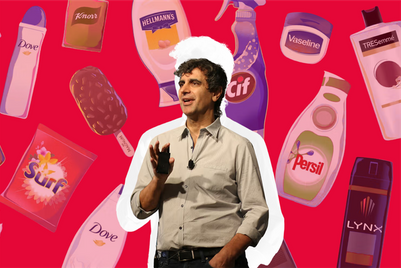
Singapore is one of the most socially connected countries on earth with smart phone penetration over 100 per cent and Facebook membership and usage at record highs. Therefore the way to have a successful business here is to engage social influencers and inspire social advocates. They can make or break your business.
Engaging with social influencers is more challenging and yet more rewarding than spending your marketing dollars online. As long as you deliver a quality service or product and engage with and reward influencers, they will become your greatest advocates. However, there are dangers that the opposite can happen if your brand fails to deliver, you fail to engage or you don’t reward influencers. This could have a devastating effect on your business.
Unlike advertising, where people can ignore it, take it or leave it and know that it is there to sell you a product, an influencer online is like the friend who you trust and who recommends a product or service that you were thinking about buying but were not quite sure about. You needed that extra “go on it’s great” to push you over the edge of purchasing.
That comes from good old-fashioned “word of mouth”, which today is mostly online. If you’re not making use of the most powerful, most followed influencers and turning them into brand advocates with persuasion and treats, then your competitor probably is.
According to Gartner, 74 per cent of consumers rely on social networks to guide their purchases, so this is clearly an area that any online retailer or business needs to focus on if they are to maximise sales in Singapore. In a country where people won’t take risks and are reluctant to purchase something that hasn’t been endorsed by a celebrity, their friends or respected social influencers, tapping into social influencers and turning them into a brand’s greatest advocates is not only wise but essential for a successful marketing campaign.
It’s not just Singapore that this effects, but Indonesia and Malaysia too. Enda Nasution, a well-respected blogger, dubbed the "father of Indonesian bloggers" says that, "since 2010, brands have been engaging influencers through social media by appointing brand ambassadors to creating games/acitivities/quizzes promoted via social buzzers (bloggers with substantial followers). Other methods to engage influencers include offline activities such as sending products to influencers."
"Indonesia is a strong communal and status-hungry society, and Indonesians in general are looking at role models like influencers to be led on what/how to think or behave, and even on their choice of food. We constantly need recommendations from third parties, or someone we look up to or respect, and social media makes it easy to follow these role models. This culture is the reason why influencer marketing works."
Social influencers have a major say in purchase decisions in what is becoming known as social commerce or s-commerce. These include:
- Peer-to-peer sales platforms like eBay.
- Review sites like Tripadvisor.
- Social network-driven sales like Facebook.
- Group buying sites like Groupon.
- Peer recommendations like Amazon’s “people who bought this item" feature.
- User-curated shopping lists like Pinterest.
- Participatory self-created and funded commerce like Threadless.
- Social shopping like Motilo.
Some of these methods are more successful than others. The key to them all is that they are all propelled by social influencers. It’s also worth remembering that influencers are people too and not just their marketing tools and therefore can be inspired but also let down, can have mood changes and be influenced themselves to change direction. Brands have to manage and develop them as such and not expect them to do things automatically.
Clara Chen is founder and CEO of Influr, a social-media influencer and measurement platform.


.jpg&h=334&w=500&q=100&v=20250320&c=1)


.jpg&h=334&w=500&q=100&v=20250320&c=1)




.jpg&h=334&w=500&q=100&v=20250320&c=1)





.jpg&h=268&w=401&q=100&v=20250320&c=1)


